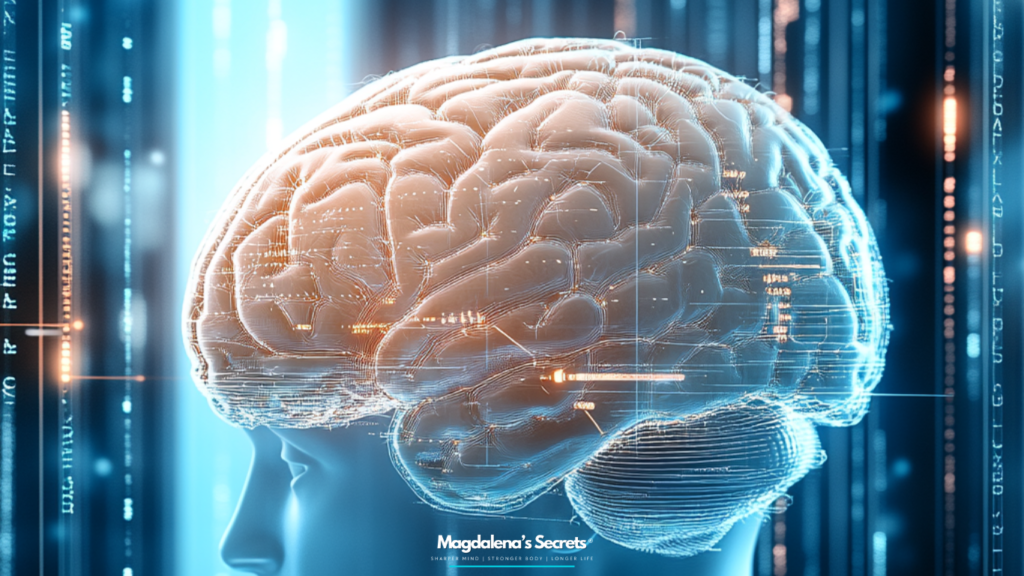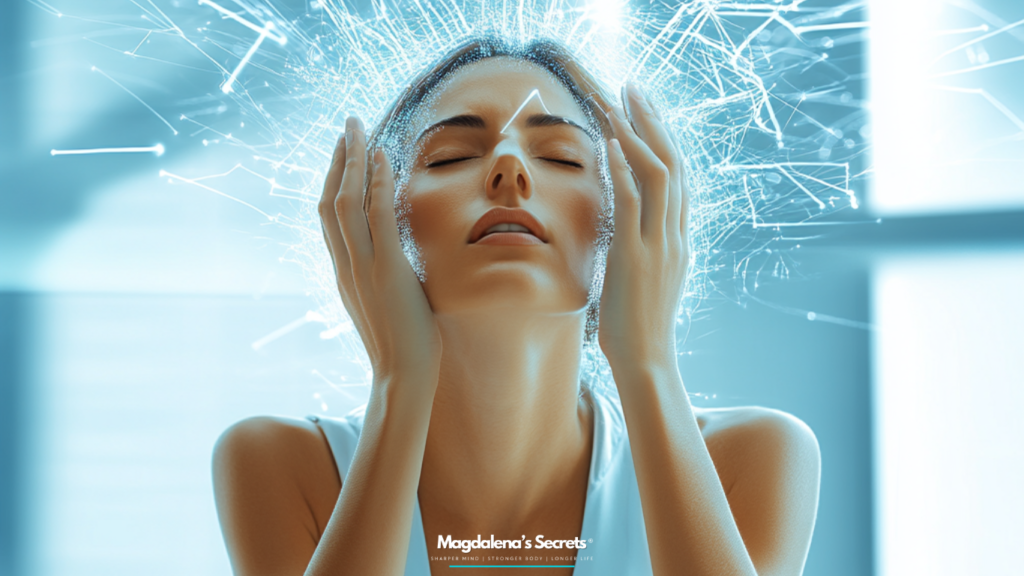When we think of hormones and brain health, estrogen usually takes the spotlight. But there’s another major player that often gets overlooked — one that’s equally essential for a woman’s emotional, cognitive, and neurological well-being: progesterone.
Often called the “calming hormone,” progesterone plays a vital role in balancing mood, supporting sleep, protecting brain cells, and regulating the nervous system. Its impact extends far beyond the reproductive system — and during the transitions of perimenopause, menopause, and postmenopause, a decline in progesterone can lead to significant brain-related symptoms that affect quality of life.
The Brain-Progesterone Connection
Progesterone isn’t just a reproductive hormone. It’s a neurosteroid, meaning it directly affects the brain and nervous system. It interacts with receptors in:
- the hippocampus (the brain’s memory center)
- the amygdala (which processes emotion)
- the hypothalamus (which controls temperature, mood, and hunger)
Here’s what progesterone does for the brain: ✅ Calms the nervous system by activating GABA receptors — the same receptors targeted by anti-anxiety medications
✅ Supports deep, restorative sleep by quieting the mind and stabilizing circadian rhythms
✅ Balances mood and reduces anxiety by counteracting the stimulating effects of estrogen and cortisol
✅ Protects brain cells from oxidative stress and inflammation
✅ Helps regulate body temperature, easing hot flashes and night sweats
This calming, balancing influence is why progesterone is often referred to as nature’s natural Valium — without the side effects.
Perimenopause: The Roller Coaster Begins
Perimenopause — often starting in a woman’s early to mid-40s — is marked by hormonal fluctuations rather than a steady decline.
One of the earliest and most significant changes? A drop in progesterone production.
During this time, many women begin to experience:
- Anxiety and irritability
- Insomnia or waking at 3 a.m. with a racing mind
- Mood swings or depressive episodes
- Irregular cycles and heavier bleeding
That’s because ovulation becomes less consistent, which means less progesterone is produced each month — even while estrogen might remain high or spike unpredictably. This estrogen dominance, unopposed by calming progesterone, can throw the brain out of balance.
Supplementing with bioidentical progesterone (especially in transdermal or oral micronized form) during perimenopause can restore emotional stability, improve sleep, and calm the mind. Many women report significant relief within weeks of starting a balanced hormone protocol.
Menopause: Supporting the Aging Brain
Once menopause arrives (defined as 12 months without a menstrual period), both estrogen and progesterone levels drop sharply.
This hormonal decline has a well-documented impact on cognitive function, mood, and sleep.
While much focus has been placed on estrogen replacement therapy, progesterone plays an equally vital role — especially in brain protection and emotional regulation.
Studies have shown that progesterone:
- Enhances myelin repair, supporting brain communication
- Reduces neuroinflammation, a major factor in age-related cognitive decline
- Helps with anxiety, depression, and emotional reactivity
- Contributes to a better quality of life and sleep when combined with estrogen in hormone therapy
During menopause, adding bioidentical progesterone can make a profound difference in how a woman feels day to day — mentally, emotionally, and physically.
Postmenopause: Not the End, But a New Chapter
Even years after menopause, brain aging continues — and so does the need for neuroprotection.
Progesterone’s antioxidant and anti-inflammatory effects remain highly relevant in postmenopausal women.
Emerging research suggests that progesterone:
- May reduce the risk of neurodegenerative diseases like Alzheimer’s
- Supports ongoing sleep quality and emotional balance
- Helps preserve brain plasticity, memory, and resilience against age-related changes
In short, progesterone isn’t just a fertility hormone — it’s a lifelong brain ally.
Final Thoughts: Women Deserve Progesterone Awareness
For too long, women have been told their mood swings, anxiety, or brain fog are “just stress” or “part of getting older.”
But the science tells a different story — one where hormones, especially progesterone, play a central role in how women think, feel, and function.
Bioidentical progesterone, when used mindfully and under proper guidance, offers women a powerful tool to reclaim mental clarity, emotional stability, and inner peace during all stages of menopause.
Because it’s not all in your head — it’s in your hormones.
And with the right support, you can feel like yourself again.




